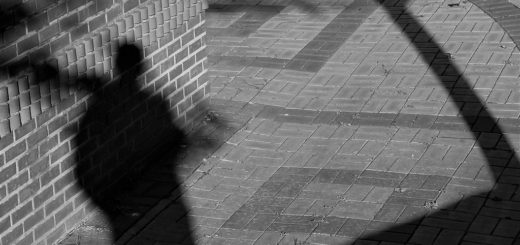The Rule of the Experts, Part One
An honest search for knowledge inevitably and necessarily opens out on other avenues of inquiry beyond the one originally embarked on. The moment one begins to feel “knowledgeable” about X, further questions present themselves — questions which, if examined with the same honesty with which you set out on the initial investigation, typically complicate the original knowledge. Specifically, the whole truth you seemed to have found suddenly becomes frustratingly or enticingly (depending on your character) partial, merely a stepping stone or transitional idea, perhaps at best an impetus to further investigation.
An expert is a man who willfully ignores those naturally-appearing avenues of complicating inquiry, and who rather, in the name of maintaining his social status as an expert, self-interestedly seeks to hide those complications from his audience. That is to say, an expert is a man who, whatever his original intentions, comes to value the preservation of his reputation for expertise — and that includes his reputation with his most morally intimidating audience, namely himself — above his desire to know, such as it is (or was).
This psychological mechanism of expertise, which short-circuits serious inquiry in the name of entrenching the intellectual stasis of specialized certainty, promotes at least one effect that is directly antithetical to the search for truth: The expert, qua expert, becomes more likely to stubbornly persist in ignorance and error than the non-expert — even to insist on his errors with self-righteous Tartuffery, particularly with regard to his special area of expertise.
To become an expert is to achieve a certain social status as one who knows about something, and therefore as a socially trusted dispenser of insight or advice on that subject. Social approbation, i.e., the public affirmation of superiority, is a powerful psychological stimulant, a great ego trip if you will. Like all addictive drugs, however, the stimulant of social approbation carries within it its own destructive dangers, namely the convenient narrowing of perspective and neglect of higher concerns which gradually transform the pleasurable stimulant into a tyrannical monster in the soul — a monster of potential humiliation and the dread of being “unmasked.”
The most immediately apparent means of escaping from this monster, and therefore the most common method chosen, is to deny, ever more fiercely, that the monster exists at all. That is to say, if one fears being exposed as less knowledgeable than one’s carefully-established expert status demands, the most alluring path is to build an ever-hardening wall of bravado and pseudo-certainty around one’s expertise, in the hopes of discouraging the world, and oneself, from even considering alternative answers that might shake the foundations of one’s social approbation. And remember, this escape path, though a universal human weakness, is far more attractive to one who has crafted a popular position for himself as more knowledgeable (respectable) than others, for the simple reason that such a man of public repute has, or feels that he has, more to lose from being wrong.
In short, the publicly recognized expert has the greatest vested interest in his alleged knowledge being proved right — or rather accepted as right — and is therefore more likely than the non-expert (or the less reputed specialist) to blind himself to possible errors in, or misapplications of, his presumed certainties. That is, he is more naturally inclined than any other person to interpret every relevant case in such a way as to claim it as evidence for his theory, and to reject every alternative interpretation out of hand. Confirmation bias is in a sense the special disease of the publicly-accredited expert, and will usually be most acute in the very men regarded as most expert. For what is at stake for the expert, more than for anyone else, is less his knowledge than his ego. To a man who has built a career and self-image on a foundation of social approbation, i.e., ego-gratifying reputation, nothing is more disturbing than a blow to that reputation, and no fate as terrifying as that which befalls the man who has been reassessed by the public as that most humiliated of creatures, a discredited expert.
A man who searches for knowledge honestly, and without the artificial limit on this search demanded of those who become obsessed with achieving social approval as experts or publicly respected specialists (i.e., as deeply incomplete “knowers” with a vested interest in confusing the part for the whole), has no reason to worry about being discredited. In fact, the concept of discredit is not applicable to the sincere seeker of understanding, since one of the premises of honest investigation is the hypothesis that one will be wrong, partially or entirely, many times, and that wisdom is in a sense the willing acceptance of the imperatives represented by all those pointed questions with which Nature jabs us, precisely at those moments when other men are most tempted by the comforting sleep of self-certainty.
Paradoxically, then, it is precisely at those moments when experts are most likely to come to the fore in social life, and are most in demand to dispense their quasi-wisdom to their deferential inferiors, that they become the people least deserving of public trust. For it is at such moments that their fatal flaw — the specialist’s essential susceptibility to confirmation bias — is most likely to have its way with them, and therefore with the population that has been trained to “listen to the experts.”



